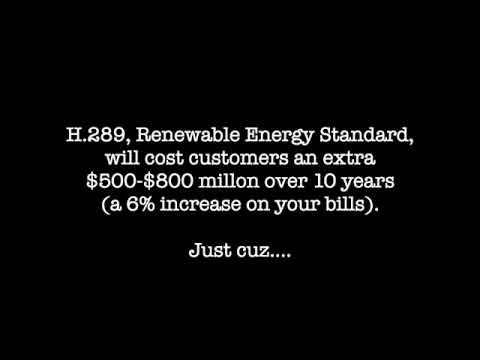Get ready for $800 million in higher electric costs, just cuz.
More ideological virtue signaling with other people's money.
The House Energy & Technology Committee took up H.289 this week, a bill to ratchet up our current Renewable Energy Standard (RES) mandates – the amount of electricity utilities have to buy from so-called “renewable” sources – from 75 percent by 2032 to 100 percent by 2030. This, according to the Department of Public Service, will cost Vermonters an addi…
Keep reading with a 7-day free trial
Subscribe to Behind the Lines: Rob Roper on Vermont Politics to keep reading this post and get 7 days of free access to the full post archives.



